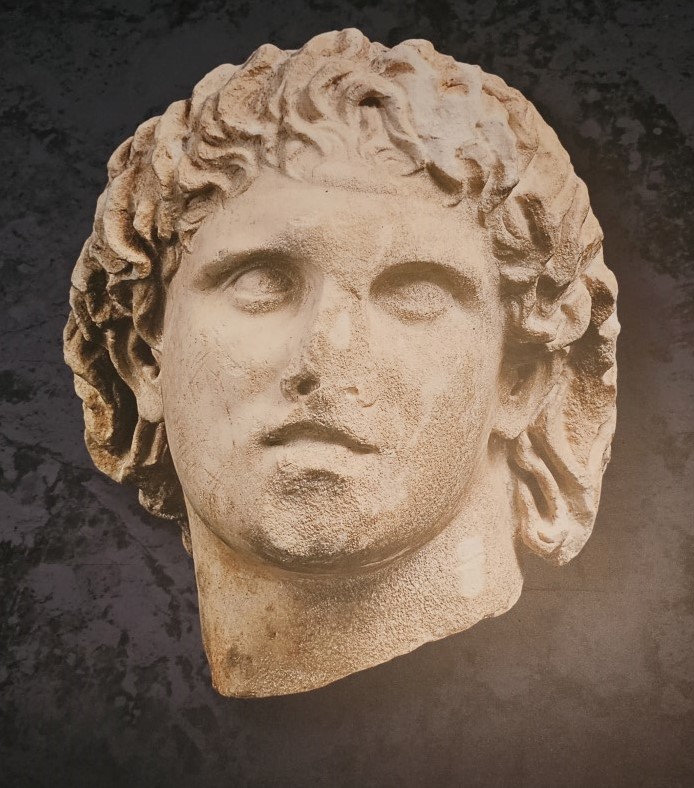
Many will think it’s the territory he conquered and the extent of his empire, which certainly was impressive: from Greece to Egypt to India. His real greatness, however, was in his character and that he developed his ideas of accepting and honoring cultural diversity, of treating the rulers and peoples of the countries he captured with respect, dignity, and an appreciation of their culture, that he used negotiation as well as battle to advance his territory.
Photo of bust of Alexander and map of his territory courtesy of the Archeological Museum of Pella (Αρχαιολογικό Μουσείο Πέλλας).

Alexander was born in Pella, now in the Macedonia region of northern Greece, in 356 B.C.E. His father was Philip II of Macedonia, king of the most powerful regional kingdom of ancient Greece. His mother was Olympias, a princess from the Molossian region of the Greek kingdom of Epirus in northwestern Greece, now part of Greece and Albania.
Photo of bust of King Philip II and image of Olympias on a Macedonian gold medallion.

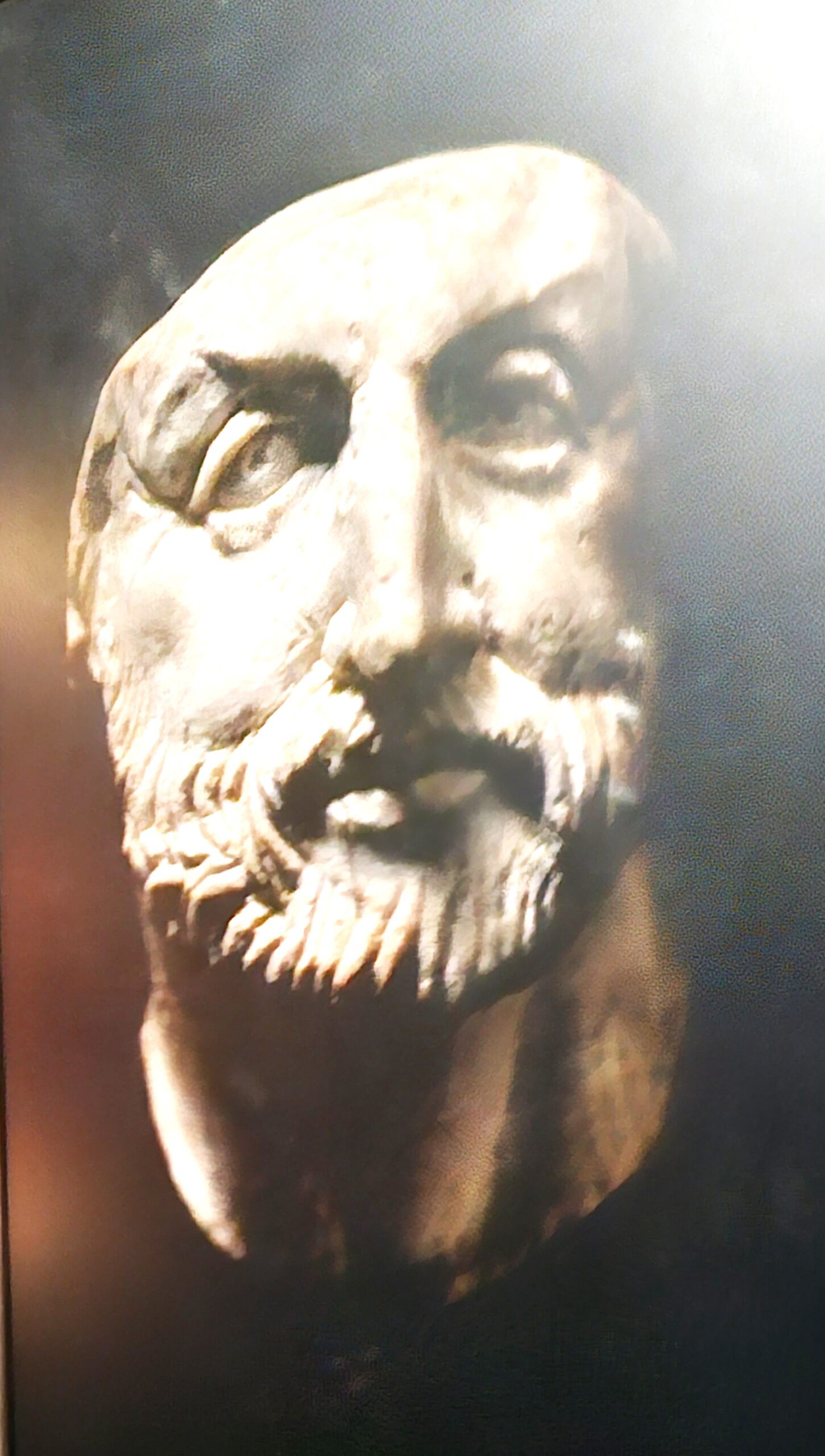
Here’s an anecdote that demonstrates Philip’s expectations of his son. When Philonikos brought Voukefalas (Ox-head), a wild and untamed horse, to King Philip, the trainer had trouble controlling him, so Alexander stepped in and was able to handle the horse better than anyone. It is said that the first time he dismounted, his father kissed him and told him “My child, ask for a kingdom that you deserve, because Macedonia is not enough for you.” Voukefalas became Alexander’s constant companion and was with him to the borders of India, where he died from age and fatigue. Alexander named a city after him. It’s thought that no one else ever rode him.
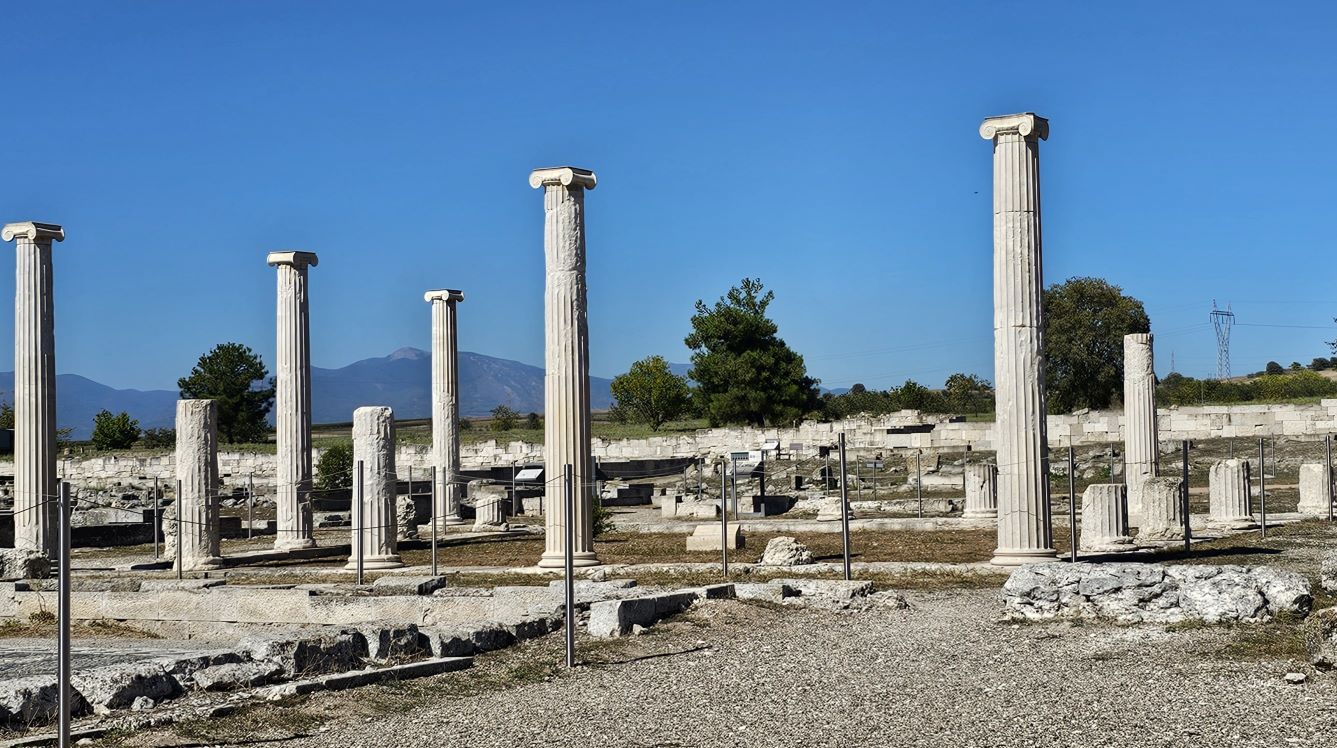
Ruins of King Philip’s palace in Pella, where Alexander grew up.
On the left, a simple mosaic within the ruins, welcoming those, such as myself, to really walk in the footsteps of Alexander the Great. Anyone who has traveled in the areas of ancient Greek and Roman ruins will often come across at least sections of these mosaic floors and walkways unprotected and lasting these thousands of years. On the right, a mosaic floor from the Pella palace preserved in the museum at the site.
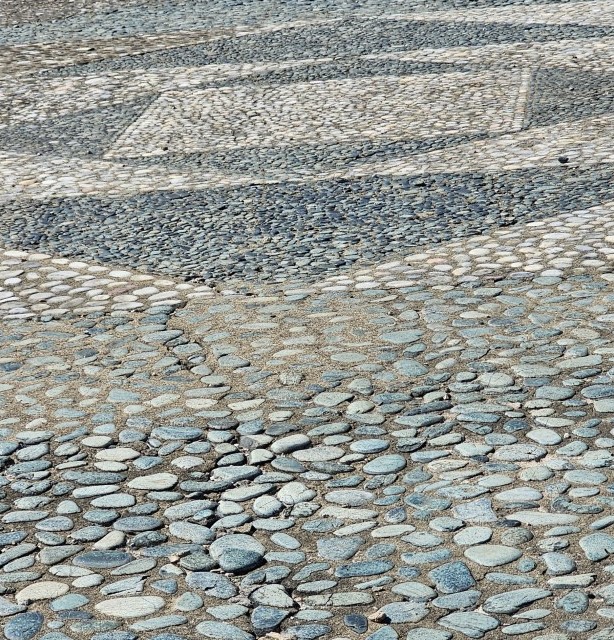

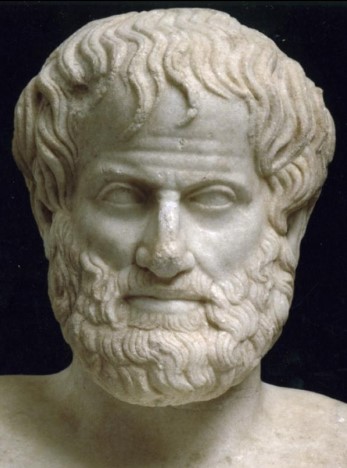
Aristotle
King Philip hired Aristotle to come to Pella to tutor 13-year-old Alexander and a few of his closest friends. Although Alexander learned much from Aristotle, he differed with him on one major point, the character of leadership. According to Plutarch in his surviving writings, Aristotle counseled Alexander “to act towards the Greeks as a leader and towards the barbarians (at the time, almost all who weren’t Greek) a conqueror. To take care of the former as friends and relatives and to behave to the latter as animals or plants.” These were common sentiments at the time. Alexander revolutionized them by not differentiating between Greeks and non-Greeks and behaving as a considerate, thoughtful person to all. There are many documented examples of that occurring. He honored virtue above everything else. The late Dr. Will Durant in “The Life of Greece” wrote the following of Alexander in an entire chapter on him. “If we would understand Alexander we must always remember that he bore in his veins the drunken vigor of Philip and the barbaric intensity of Olympias.”
His mother, on the other hand, constantly in conflict with Philip over raising Alexander, installed in her son an appreciation for and belief in the pantheon of Greek gods and goddesses and certain of their related mystic cults and practices associated with that, e.g., consulting oracles and making sacrifices. She instilled in him the impression that he was in some way descended from Zeus, the head of the Greek pantheon, which gave him a sense of deification. As he became aware of Eastern deities, he was also given a sense of deification. He introduced Eastern religions into the Greek world. There are many other aspects of his deification, too numerus to describe here, but it was enough for him to be considered a demi-god. Plutarch, who wrote her biography in the 1st century CE, stated that she was a member of the orgiastic Dionesyian cult, which worshipped many living things, such as non-poisonous snakes, leopards, and others. Mary Renault in her books on Alexander makes note of this also with more detail. It is from this possible evidence that Plutarch uses those terms to describe her. It appears clear that at the time many thought of her as a witch, but definitely not Alexander. He was very close to her and made a point of visiting her often as a child and later when not on his foreign conquests. After the death of Philip when Alexander became king, he put her in charge when he was away.
I’m sure there are many apocryphal stories of Alexander the Great, but there are also enough ancient Greek writings and letters to understand that there was something special about this young man, who saw as his mission to unite East and West in a peaceful co-existence. After he died, his empire was split among his generals, although Olympias fought for it to go to his infant son, Alexander IV, born posthumously after Alexander died. Both Olympias and Alexander IV were assassinated.
Note: All photos by the author from museums in the Macedonian area of Greece, Albania, and North Macedonia including the Pella archeological site and the tomb of King Philip II in Vergina, both in northern Greece, all of which which she visited in September-October, 2024.

Thanks for all that about Alexander that I didn’t know! Very interesting. Wish he was still around.